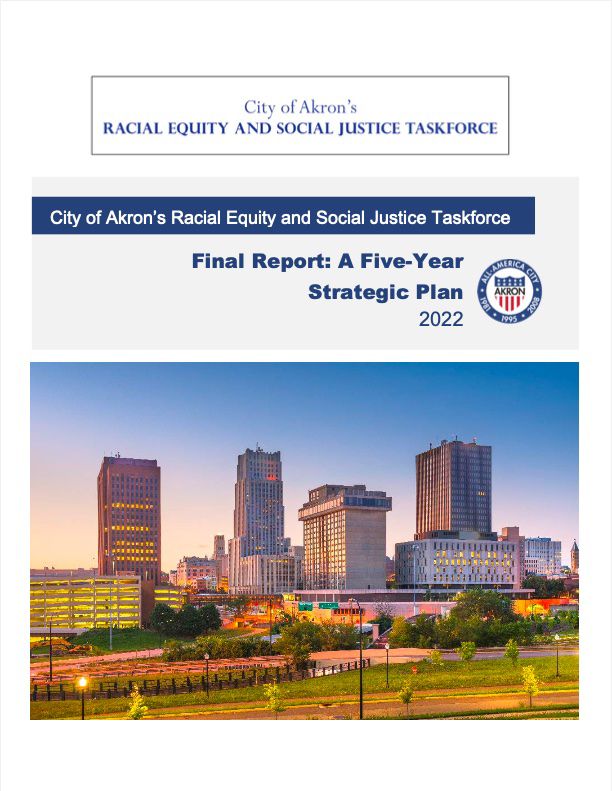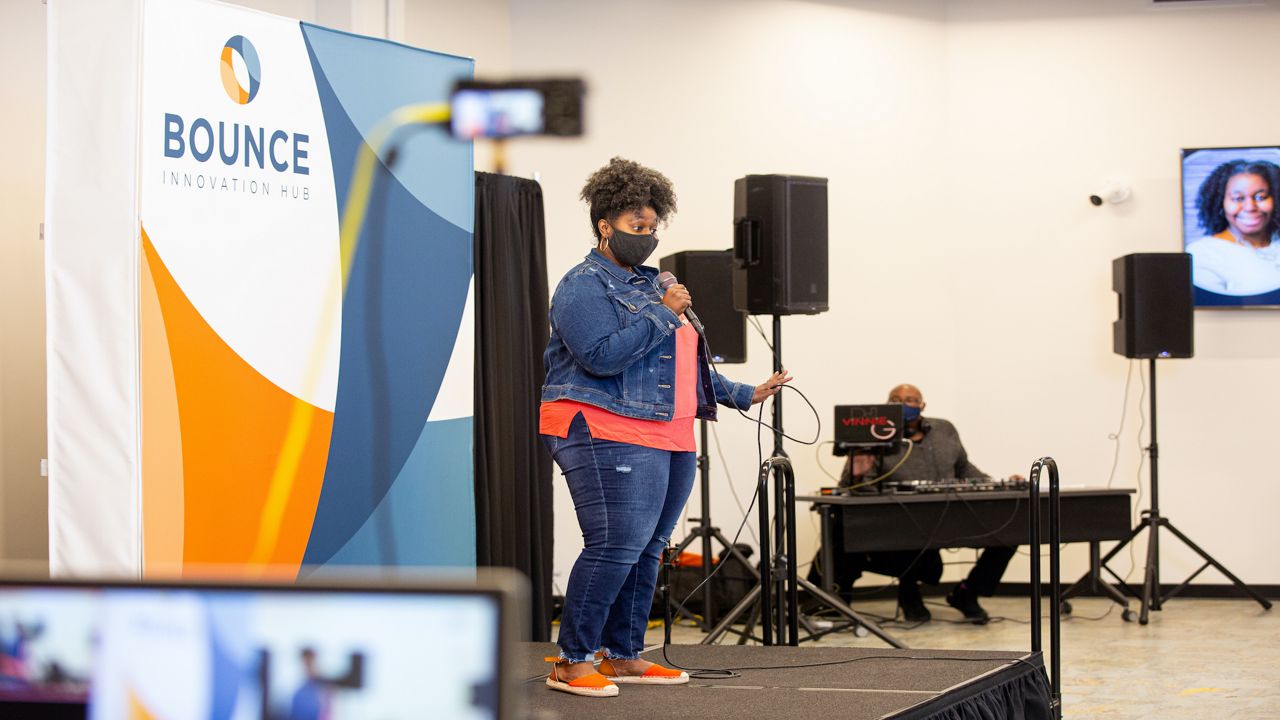AKRON, Ohio — After more than a year of studying Akron’s systems and policies, the Racial Equity and Social Justice Taskforce has released its findings via a five-year plan.
The Taskforce was established in June 2020 in response to the city declaring racism a public health crisis. The goal was to develop recommendations that could lead to a more racially equitable community and close the “racial wealth divide,” the city said in a release.
The Taskforce was chaired by Bishop Joey Johnson, senior pastor of the House of the Lord. The work was guided by the city’s Health Equity Ambassador Tamiyka Rose. Besides council members, the Taskforce included 29 residents with diverse backgrounds.
Johnson called the work important and historic.
“Systemic and institutional racism was not woven into the city’s policies and procedures overnight in Akron, and it will take time to eradicate the injustices that have plagued our society for centuries,” he said. “This is just the beginning, and I look forward to seeing our recommendations being implemented over the next five years and beyond.”
An executive committee and six subcommittees comprised the Taskforce, which emphasized transparency and accountability, the city said. A diversity scorecard was used by several subcommittees.
“These recommendations will not exist as a lifeless document that sits on a shelf — but rather a plan of action, with specific benchmarks that the community will use to hold us accountable for creating real change,” said Mayor Dan Horrigan. “We know that racism is not a thing of the past but rather a very real threat that exists in our community to this day. That’s why we must be constantly working towards a more equitable Akron, and say in a unified voice that racism has no place in this community.”
Recommendations include:
The communications subcommittee worked on a communications framework, created the Racial Equity Guiding Coalition and recommended the city follow equity guidelines established by the Government Alliance on Race and Equity, a national network of governments working to achieve racial equity.
The criminal justice subcommittee focused on the Akron Police Department, recommending greater police accountability mechanisms, such as hiring a police auditor and creating a civilian oversight board. The committee also made recommendations related to body-worn camera legislation and policy, training, hiring and promotion practices, and community policing.

Limiting the effects of poverty and closing achievement and opportunity gaps that exist between white students and students of color are among the education subcommittee recommendations. Pandemic recovery, cultural sensitivity and fiscal transparency are included in the recommendations.
The workforce development subcommittee worked on how the city should prepare diverse candidates for employment.
The health subcommittee looked at the root causes of inequities public health care. The subcommittee’s recommendations looked at ways the city improve health care for employees and citizens.
Increasing the number of strong and inclusive neighborhoods in the city and boosting access to opportunities for economic advancement are among the housing subcommittee recommendations. The focus was on three areas: investing in traditionally underserved neighborhoods; offering ways people of color can live in integrated communities; and promoting homeownership.
With the recommendations in, the city administration and City Council will review the report and submit comments back to the Taskforce. Some of the recommendations will be implemented immediately, the city said.
Funding for the recommendations could come from the city’s general fund and, where appropriate, from American Rescue Plan Act funds, the city said.









